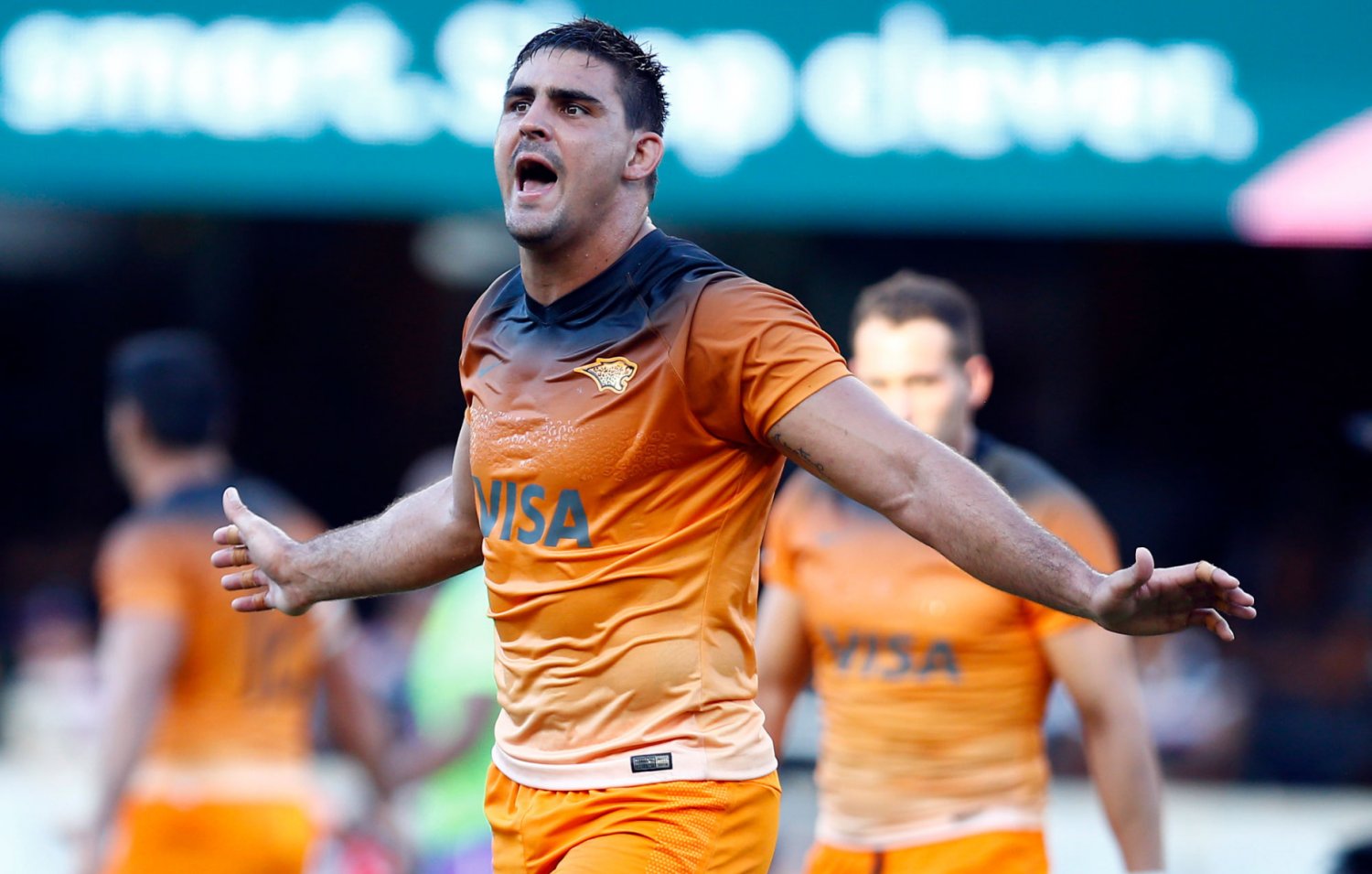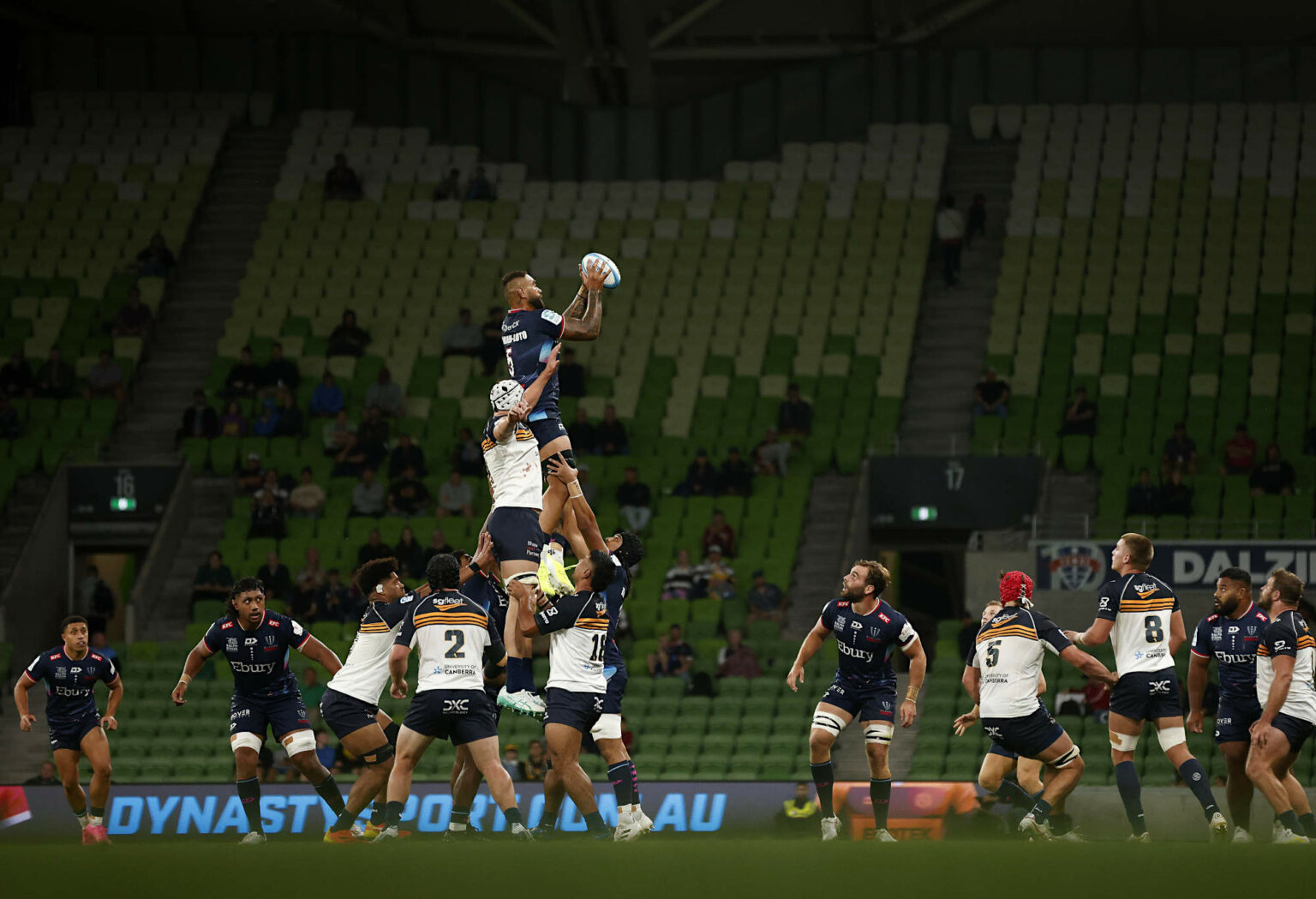Jaguares set for early return to Super Rugby if Rebels fall over
- 3606

Six months after Argentina rugby president Gabriel Travelaglini revealed the Jaguares had been invited to return to Super Rugby in 2026, Super Rugby officials could catapult the South Americans back into the competition next year if the Melbourne Rebels cease to exist.
According to the NZ Herald, Super Rugby officials are considering asking the Jaguares, who made the final of the competition in 2019 before falling into the too hard basket when the Covid pandemic stopped international travel, to return a season ahead of schedule.
With New Zealand Rugby and Rugby Australia fearful the removal of a Super Rugby side could lead to a reduction in broadcast funding, the NZ Herald reports contingency plans are already being hatched.
Sources told the publication that the Argentinian side would be “ready to go” if given an 11th hour call-up, with former Los Pumas captain and World Rugby vice-chairman Agustin Pichot driving their return.
It comes after Travelaglini let the cat out of the bag that plans were already afoot to see the Jaguares return from the start of the next broadcast cycle.
“We have the invitation, but it would be from 2026, because they have already closed the current one,” Travelaglini said last September.
“It is planned to set up a franchise. We have the commitment that they will receive us and that we will play games at home and away.”
Just who would run out for the Jaguares remains to be seen, with players unlikely to have to return to the Super Rugby side to be eligible for the national team like they were ahead of the 2019 World Cup.
Most likely the franchise would follow a similar path to the Fiji Drua, which offers local players the opportunity stay at home rather than having to head overseas to earn a living. It would further bolster Argentina’s rugby pathways, too.
The immediate and long-term future of the Super Rugby Pacific competition is bound to be the main talking point at this week’s Super Rugby meetings in Melbourne, as all 12 sides gather in the Australian city for Super Round.
With the Rebels falling into voluntary administration late last month and looking for a white knight to bail them out of a $22 million black hole after being given a 60-day reprieve by the Federal Court, the future of Australia’s most recent Super Rugby franchise is bleak.
No concrete decision has yet been made about the Rebels’ future, but following a restructuring, which saw 10 positions, including the chief executive Baden Stephenson, made redundant, it appears all roads lead to the side ceasing to exist at season’s end.
The entire high performance team, including head coach Kevin Foote, have also had their contracts taken over by Rugby Australia and issued until June 30.
Adding to the sense of urgency around a quick decision with the Rebels is that broadcast negotiations are set to heat up over the coming months, with the current deal to finish at the end of 2025.

That gives the trans-Tasman partners some wiggle room, but often national unions like to have deals wrapped up well in advance to allow them to promote the competition.
“Most of the work about the future shape of the competition in terms of number of teams and formats is focused on 2026 and the next media rights cycle,” NZR rugby Mark Robinson told the Rugby Direct podcast.
“Clearly the Rebels’ challenges have meant some of those conversations have been brought forward a little bit. We’re not 100 per cent sure around where the Rebels’ future sits but it’s significantly challenged at the moment.
“It’s too early to say what the number of teams are going to be. We need to find out exactly where the Rebels are at and then work through the rest of the year.
“There’s lots of different conversations as it relates to South America; North America, Japan as potentially interested parties but we need a bit more detail on that before we can comment too much further.”
While the Jaguares were one of the success stories of Super Rugby before their abrupt departure, the chopping and changing of the competition, which expanded to 18 franchises and played across four continents in 2016 before returning to 15 sides in 2018, made it difficult for the public to come to terms with the competition’s format.
Robinson conceded learning from the past was vital for the competition to grow and prosper.
“It’s a really fair observation,” Robinson said of the damage previous expansion caused the Super Rugby landscape.
“When we talk about the fans that’s not great for the identity and purpose of the competition. As I share some of the conversations about new territories coming into the competition those lessons are certainly front of mind. Having in-depth analysis, great data, around what any new entrant or expansion might mean is a foundation from decisions in the past.”
Last week former NZR boss David Moffett cautioned against expanding the competition, saying the trans-Tasman neighbours needed to get their house in order first.
“They destroyed a competition that was the envy of the world because they went for quantity over quality,” Moffett told The Roar.
“They’re still talking about going to Japan and America.
“Why would Japan have anything to do with Super Rugby? They’ve got their own competition up there that is attracting so many good players. It’s no longer somewhere players go to pick up their retirement fund.”


















